News & views.
A collection of stories about data, public opinion and politics and news about our firm.

Listening Matters: A Reminder of the Power of Focus Groups
Public opinion polls overshadow focus groups as a form of research thanks in part to the media's obsession with forecasting election outcomes. But insights we have gleaned from recent focus groups on COVID-19 remind us just how valuable focus groups can be.
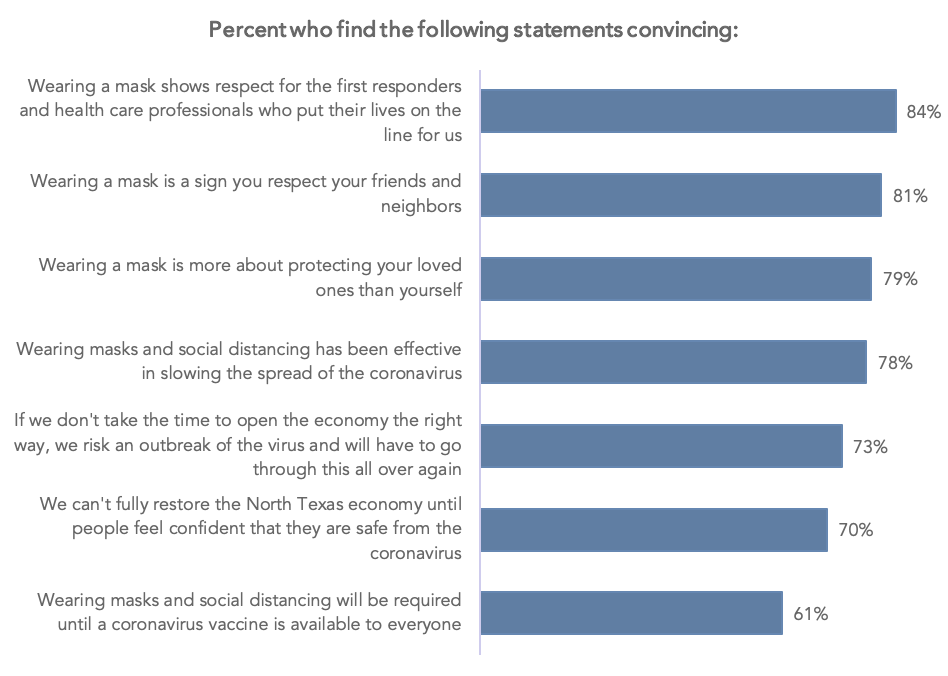
New Research: North Texans Split on COVID-19 Concerns
A study of residents in the Dallas-Fort Worth area reveals a fault line in public opinion on COVID-19 between people who are more concerned about the economic impact of the pandemic and people who are more concerned about health outcomes. This is among the key findings from our work on behalf of Texas 2036, a group focused on the future of the state's economy.

The Power of Listening
"It is only by listening that we engage, understand, empathize, cooperate and develop as human beings," writes journalist Kate Murphy in a recent op-ed, distilling the key points of her new book, You're Not Listening.

A Provocative Take on Swing Voters
The conventional view of the American electorate and presidential campaigns is that roughly 55 percent of eligible voters turn out to vote and that election winners are determined by the 15 percent of "swing voters" who switch between parties. This is an outdated, Beltway-centric view, according to Bitecofer in a recent Politico profile.

When Smart Brevity Turns Simplistic
Focus groups serve a vital function, helping researchers explore voters' attitudes and the values underpinning them. A form of qualitative research, focus groups do not generalize the views of a broader population – that's where quantitative methods such as surveys come in. Axios is brushing past this important difference, drawing sweeping conclusions from its groups, such as the December 16 story by Alexi McCammond below.

Restoring Public Trust
When a company breaks trust with the public, its performance suffers. How can the company restore trust? By fulfilling the promises it makes to different audiences, argue Sandra Sucher and Shalene Gupta in a recent Harvard Business Review article.

Extreme Views Can Amplify Polarization
Public opinion data plays a central role in venture capital legend Mary Meeker's annual Internet Trends Report, and this year is no exception. For example, her analysis of Internet usage reveals deep ambivalence with living our lives online.

Axios Risks a Rust Belt Misread
The media has pledged not to repeat the mistakes of 2016, chief among them misreading public opinion data. We hope Axios wakes up before making the same mistake in 2020.

Voices from West Texas
Energy development is as much a part of Texas culture as football in the fall. But Texans doubt that developers can extract oil and gas resources while also protecting the communities, land and water.

Our Political Fault Lines
The divisions in American politics are best understood as regional, not urban versus rural or coastal versus heartland. This is the thesis from Colin Woodard, the journalist and author of American Nations, a book we turn to regularly for its insights into the diverse values which underpin American politics.

Phone versus online and other considerations: A primer on nonprobability surveys.
You can't make smart decisions on messaging or campaign strategy if the data you're basing those decisions on isn't accurate.

The Power of Mary Meeker's Internet Trends Report
We love diving into Kleiner Perkins' Internet Trends report, prepared each year by venture capital legend Mary Meeker. Without fail, the report is full of insights into how society is grappling with technological change.

Trust in Polling
If there's any remaining confusion about what happened with election polling in the 2016 presidential campaign, the Pew Research Center clears it up in this 6-minute video. The key takeaways: while national polls were very accurate, state polls largely missed a late swing to Donald Trump and underrepresented people without college educations.
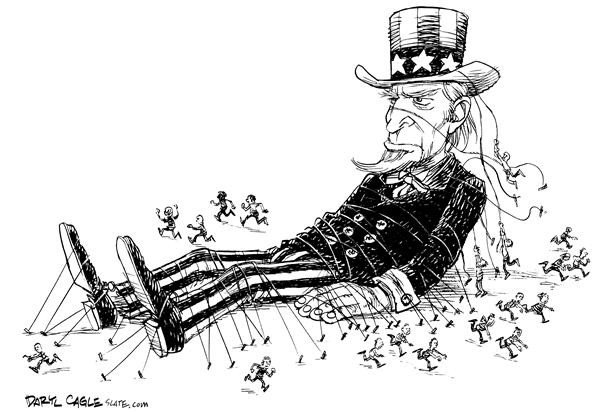
Rebuilding Trust in Government
As a nation, we are often reminded of and criticized for our low level of trust in government. Looking at our history, this trust deficit should come as no surprise: skepticism of a strong central government is hard-wired into our national culture.
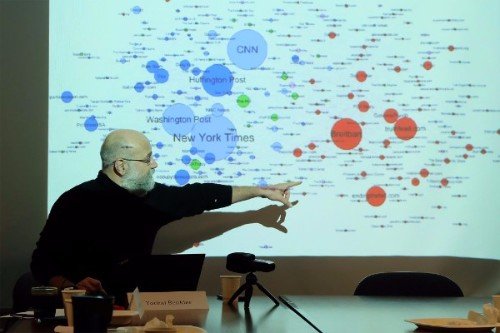
Harvard Study on Partisanship, Propaganda and Disinformation
One interesting finding is that the coordinated right-wing media ecosystem successfully communicated a consistent story — and ultimately influenced the campaign. The study’s authors write that “both candidates got critical coverage but Trump had issues and he had scandals; with Clinton it was only scandals.”
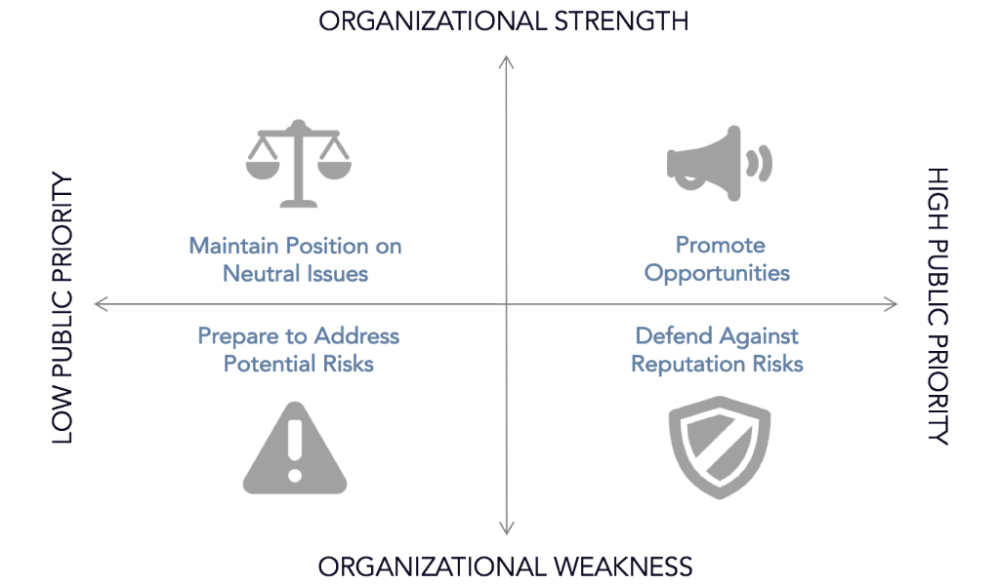
Introducing Lighthouse
Lighthouse compares a company's strengths with the public's priorities to clarify the landscape of opportunities and risks.

Big Data: Promise and Challenges
The best research combines qualitative and quantitative analysis. Quantitative analysis informs powerful decision-making models, but when you combine it with qualitative analysis, you get depth, context and richer, more actionable analysis.

Pollster Stan Greenberg Stirs the Pot
While many of you may be ready to move past the 2016 election, there’s much to learn from the strategies that worked (and those that didn’t).
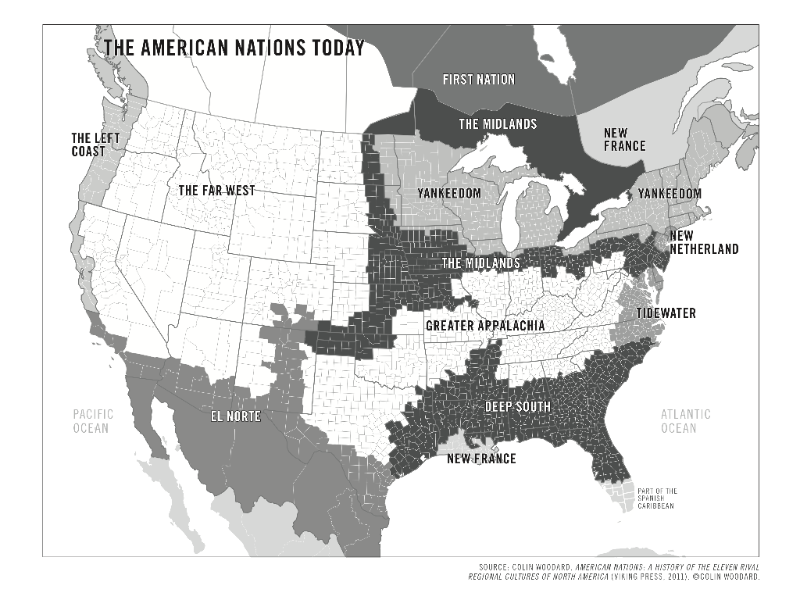
Dominant Regional Cultures Explain Our Voting Behaviors and Attitudes
If you're looking for a way to gain an understanding of what's going on in society, politics and culture at a more foundational level (and who isn't these days?), we highly recommend American Nations: A History of the of the Eleven Rival Regional Cultures of North America by Colin Woodward (2011).

Does President Trump Have a Denominator Problem?
We have long been suspicious of the resiliency of President Trump's support among Republicans, hypothesizing that it might indicate a denominator problem. That is, his support may appear stronger that it is because the number of people identifying as Republicans may be shrinking.
